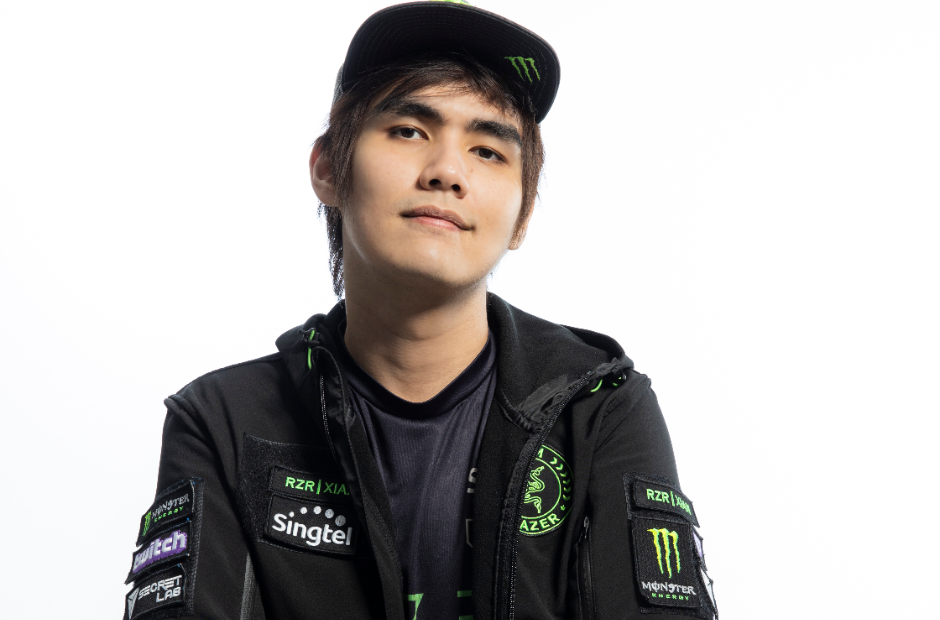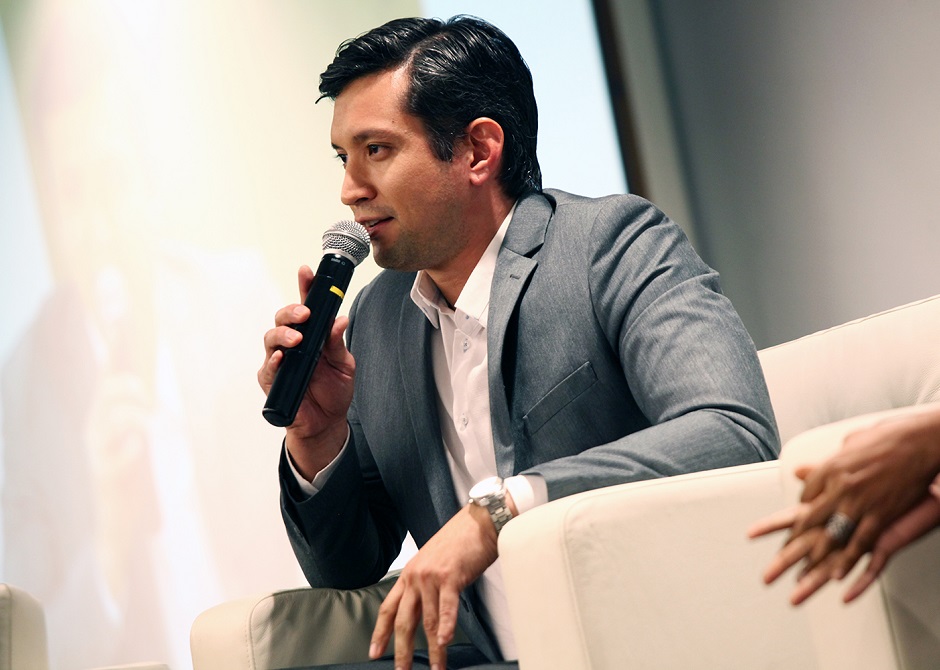It is not every day that a 17-year-old gets to strap on his guitar and jam with a Grammy award winner in front of thousands.
For Alex Kalino Hooi JunYi, this dream came true last October. The COVID-19 crisis was yet to break. Alex found himself on stage, playing a 20-minute solo set with Larry Mitchell and Glenn Sarangaphany of the hit Australian rock band, Birds of Tokyo, at the West Australian Guitar Festival (WAGF). This is a three-day music festival with a line-up of 60 music acts from across the world that began last year.
Alex, who is currently a second-year student at Singapore Polytechnic (SP)’s Diploma in Music & Audio Technology*, was then already making a name for himself as an up-and-coming guitarist in the music industry. He was jamming at local bars like Barbershop by Timbre, when he caught the attention of the WAGF’s organiser, who then invited him to perform at the festival as part of the Singapore-Western Australian Music Exchange (SWAM).
It was a milestone for Alex — a validation that a career in music was not a pipe dream, but a real possibility.
Finding the right note
Alex realised at the age of 13 that he wanted to play rock music.
“Since I was very young, music was always on at home or in the car,” says Alex. He was exposed to his parents’ eclectic tastes – spanning classic rock to hip hop to Baroque music.
Alex had been taking classical piano and violin lessons since he was six, but he did not enjoy them. “I’ve always preferred rock music, which I felt was more expressive than classical music. When I listened to rock bands like ‘Linkin Park’, that inspired me to pick up guitar in 2015, when I was 13,” he says.
Schooled in rock
Alex began learning guitar using ‘Rocksmith 2014 Remastered”’, a video game that allows players to connect a guitar to the computer to learn songs. But it wasn’t enough, so he started taking guitar lessons, practising four to five hours every day.
“Once my parents saw that guitar was something I was serious about, they supported me in every way. My father even forced me on stage for open mics just so I could get over my stage fright and get used to playing in front of an audience,” says Alex.
But Alex’s devotion to his craft meant his academic work often took a backseat to music. In 2018, he chose to enter the Young Guitarist Of The Year, an international guitar competition, even though it took place just days before he had to sit for his O-levels.
“I had a discussion with my mum about prioritising music over studies a few weeks prior to attending the live finals of the competition, which was held in London. She told me that I could always take my O-levels again, but if I missed this opportunity, it would be gone forever. So, to say that they are supportive of my passion is an understatement,” says Alex.
Alex’s countless hours of finger-blistering practice paid off; he emerged as the second runner-up, out of hundreds of entries. This achievement opened doors for Alex to perform at gigs and music festivals both in Singapore and internationally.
These include the aforementioned West Australian Guitar Festival, and the 2020 Winter National Association of Music Merchants (NAMM), a prominent music industry trade show held annually in the US that regularly attracts over 100,000 attendees. Alex also spends his weekend nights performing with the ‘Bob Sauler and The Blues Rock Renegades’ band at the Crazy Elephant Bar and other musicians at the Timbre bar in Singapore.

Alex (centre) playing at the Perth blues club.
Alex’s new-found confidence in his guitar skills reaffirmed his goal to make rock music his full-time career, and with that, he decided to stop his piano and violin lessons.
“I had already attained grade 5 at this point. My parents were initially reluctant to let me drop the violin and piano lessons, but we came to the agreement that musical grades were not important if I wanted to become a great musician,” says Alex.
More than just a strummer
Although Alex was already building up his name in the performing circuit, he felt that he would benefit from enrolling in a course to become a more well-rounded musician.
“My goal is not solely to be a guitarist but to be a producer as well. Besides improving my grasp of musical theory and technique, I wanted to learn how to compose and produce songs in a studio. I also felt that surrounding myself with musicians from diverse musical backgrounds would sharpen my creative abilities,” he says.
Alex found that in SP’s DMAT course. “My guitar teacher introduced me to DMAT as he had previously worked with a few lecturers from that course. DMAT is not strictly a course about playing music, but rather one that combines musicianship – musical theory, technique and performance — and music production,” says Alex.
There was one potential obstacle. Alex had not done well for his ‘O’ Levels, so he decided to apply through the Early Admissions Exercise (EAE), which admits students based on their interest and aptitude.
“The process was quite straightforward. I was required to submit a video of myself playing my main instrument (guitar) along with a write-up of what I intended to do during, and after the course. After that, there was a live audition and an interview,” says Alex.
“For the video, I played a guitar improvisation for two minutes, and explained that I wanted to improve as an all-round musician and learn how to be a music producer during my time in the course, “he says.
Reaching for the right notes
Although Alex is already a seasoned musician, DMAT is no walk in the park — the course throws up enough challenges to keep him focussed.
During the Production Lab module, Alex had to form a band every week with different groups of students and produce a song to be presented either at the end of the lesson or the following week. “It is tough to come up with different styles of songs every week — it really forces you to push your creative boundaries,” he says.
Alex says that working with different types of creative individuals has also allowed him to develop key life skills, such as people management. “It is important to take in everyone’s inputs; but you need to know which ones are more valuable so you can produce the best song. It is not an easy task; as musicians, everyone wants their voices heard,” he says.
There is no room for slack in the course, Alex says. All students must be consistent in practising their instruments or risk falling behind. Alex says he practises at least 10 hours a week now, on top of doing his course work. This was important in reinforcing his musical foundation.
“In my session work — where musicians are paid to learn songs and perform them with a band at live concerts or recording sessions — I rarely had the chance to read music scores. In DMAT’s musicianship module, we were required to learn to read them. This has improved my understanding of music theory,” says Alex.
“The lecturers also offer plenty of advice on how to enter the music industry, based on their own life experiences. DMAT also holds an annual event called the DMAT Show, where everything is run by the students. This is to give students a first-hand experience on how to run a live show,” he says.
The journey to becoming a guitar hero may be arduous, but Alex says he relishes every opportunity to polish his musical abilities and take his guitar playing to the next level. Today, he does the occasional session work for producers and bands that need a guitarist, and he continues to perform every Saturday night at the Crazy Elephant Bar.
Alex also credits SP for helping him become a diligent student of music. “EAE is a golden opportunity for those who are not academically inclined, such as myself. I used to dread going to school, but now that I am attending a course on a subject that I am genuinely interested in., I look forward to lectures and interacting with likeminded peers and lecturers who share the same burning passion!”




.jpg)

